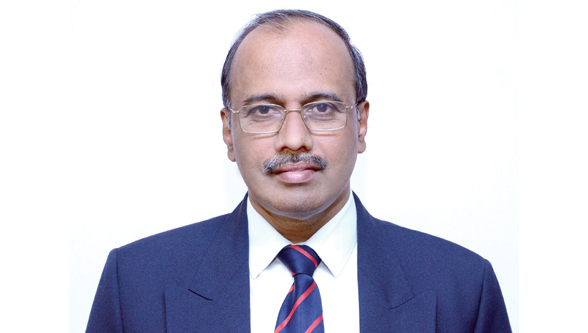MNCs may consider relocating in India
As an after-effect of COVID-19, many conglomerates may consider relocating their manufacturing
facilities. And India is likely to be a preferred destination for them, says Dr. Jacob Chandapillai,
Director, Fluid Control Research Institute (FCRI), Palakkad which is known for its world-class facility for flow measurement and control, with a reputation and experience spanning over three decades. “We need to gear up ourselves in terms of infrastructure, transparency, fund availability and speedy bureaucratic clearances in order to make it happen. This may be a blessing in disguise for our ‘Make in India’ campaign,” he remarks. “Coming to FCRI, increased confidence in technology and technical performance will cause changes in customer behaviour. This force will adapt us to new trends, such as live streaming of calibration for witness and move towards a future that could be free from physical witnessing and inspection”, he adds. Excerpts.
Q. Please tell us about the initiatives taken by your organisation for business continuity, connectivity and employee well-being during these challenging days?
Business connectivity is maintained through electronic media as usual. However, the quantum of communication has considerably reduced due to the lockdown. Ours being a service organization, and the services are mostly provided at our facility, the lockdown has severely affected the service and our ongoing projects.
The existing customers are always in touch for opinions and advice, which are provided as usual. This activity is expected to provide us continuity in business.
Employees are directed to work from home, wherever possible and are instructed to strictly adhere to Government regulations and directives.
Q. What initiatives have you taken to ensure customer engagement and satisfaction?
Many customers are also under lockdown condition and are unable to utilize the facility services due to transportation restrictions.
The interaction with them through electronic media is live and effective. In case of an emergency we are ready to provide the services at short notice.
The work is scheduled in such a way as to take it up as soon as the restrictions are at least partially removed.
Q. As a corporate entity, what are the key lessons you learn from this crisis?
A seemingly distant problem happening at some other part of the world can severely affect your country, economy and business all of a sudden and can threaten even the very existence of any business.
It also emphasizes the need for concentrating our efforts more on India’s fundamentally strong agricultural economy and abate the craving of the people for urbanization.
The business world is definitely going to restructure itself. It is too early to predict the ways in which it will be restructured, but the changes are imminent and unavoidable.
You have to be ready for any unexpected change in the business scenario and your finances need to be strong to meet any contingencies.
Q. In your view, what would be the impact of the pandemic on the overall business scenario and your industry?
The manufacturing industry may shift locations of its current production and our country is likely to be a preferred destination. We need to gear up ourselves in terms of infrastructure, transparency, fund availability and speedy bureaucratic clearances in order to make it happen. This may be a blessing in disguise for our ‘Make in India’ campaign.
This may result in a highly automated infrastructure, be it in production, construction, healthcare or government services. This will not only save energy and costs, but also improve quality. The resulting reduction in human interventions will help the businesses to carry on without interruptions should a crisis hit again.
Increased confidence in technology and technical performance will cause changes in customer behaviour, away from traditional methods. This force will adapt us to new trends, such as live streaming of calibration for witness and move towards a future that could be free from physical witnessing and inspection.
There could be a long-term decrease in business travel due to the emergence of video-conferencing tools, which may result in reduced costs and pollution.
Q. What’s your strategy to keep yourself afloat and to tackle the economic slowdown?
Cutting costs would certainly be a short-term measure to keep the organization afloat.
Exploring new business opportunities in the emerging economic scenario will be an obvious choice to keep oneself afloat.
It is likely that Governments and business leaders will allocate more funds for investing in healthcare and healthcare products. They may also favour automation in many sectors. FCRI will have to look into related activities in healthcare and automation business which seems to have high potential for growth.
The education system will be transformed. Studying remotely will enable emerging countries to improve the quality of education. FCRI can also think of offering online training programs across the world initiating through our alumni.
This crisis will also pass, and we will witness many more positive social, economic and technological developments all over the world as has been the history of mankind.
Q. Do you expect any support from the Government for your sector?
As part of Government, we will follow the policies adopted by Government and will voice our requirements in appropriate forums.



